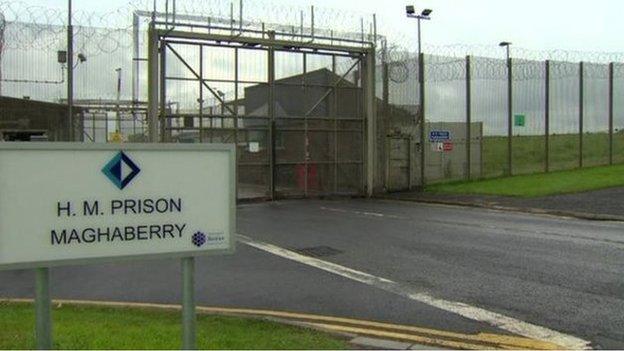Maghaberry: Significant concerns over care of vulnerable prisoners
- Published
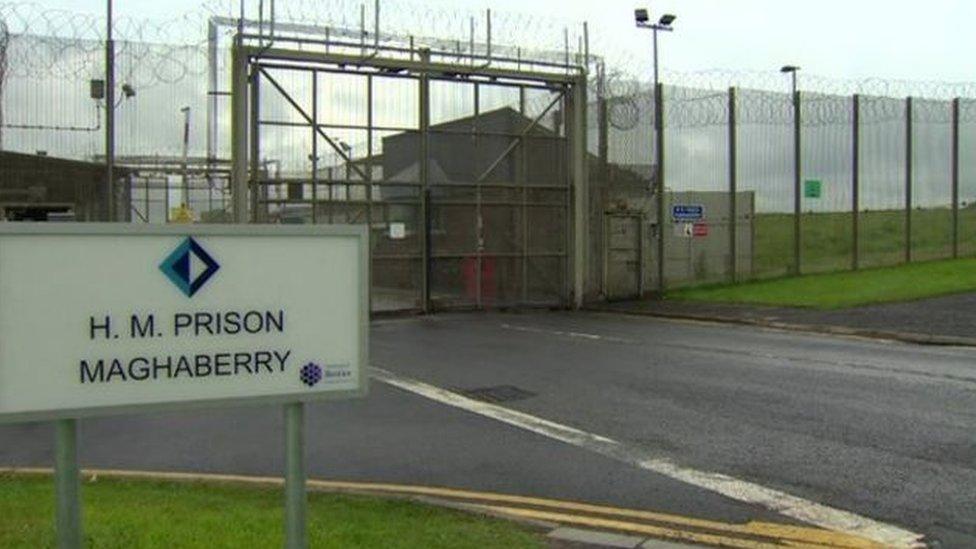
There have been five deaths in Maghaberry in the past year
Inspectors have again expressed significant concerns about the care of vulnerable prisoners in Northern Ireland's high-security jail.
A report said the overall situation at Maghaberry, near Lisburn, has improved.
But, it said more needs to be done to support prisoners with serious mental health problems.
Inspectors also said more action is needed to tackle the misuse of prescription drugs and access to illegal substances.
This latest in a series of inspection reports on Maghaberry comes at a bad time for the prison service.
Two prisoners, Barry Cavan and Gerard Mulligan, have taken their own lives in the jail this month.
There have been five deaths in the prison during the past year, four of them as a result of suicide.
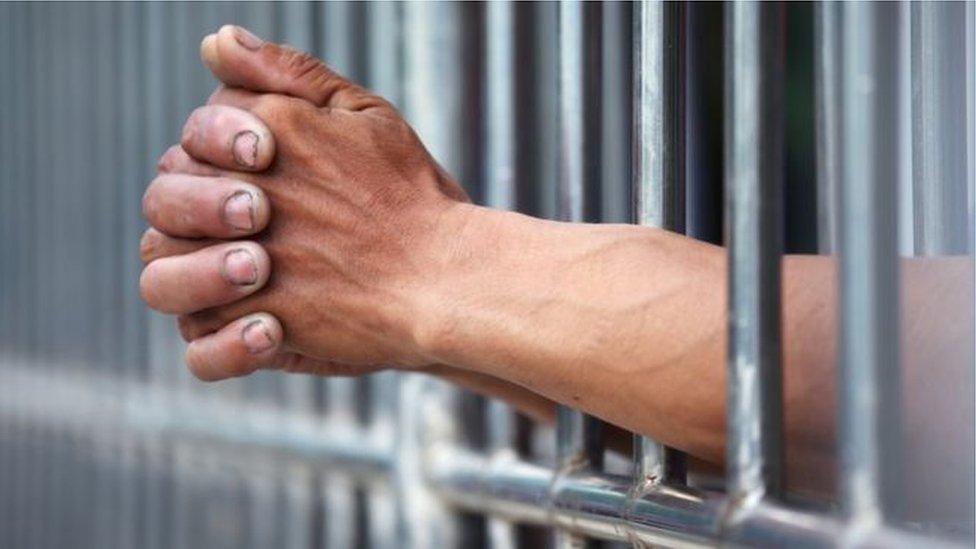
Maghaberry was labelled Europe's most dangerous prison in May last year
There are positives for the prison authorities.
Inspectors said the overall situation for prisoners and staff is more stable and safer than the situation they encountered during a visit in May last year.
At that time, Her Majesty's Inspectorate of Prisons memorably labelled Maghaberry the most dangerous prison in Europe.
This follow-up report notes encouraging progress since then, and said there are "some important early signs of recovery".
But, it repeats criticisms in a series of previous reports about the care of prisoners identified as vulnerable to suicide or self harm.
"There was still no overall safer custody strategy outlining how the prison would respond to safety issues, and/or those who were vulnerable," the report stated.
"This continued to be a significant omission that impeded work in these key areas."

Brendan McGuigan said that progress made by Maghaberry will be reversed unless it follows recommendations
The report said a small number of men with "intractable problems" are still spending too long alone in their cells, in conditions inspectors said "amounted to solitary confinement".
It was announced this week that the departments of justice and health at Stormont are to conduct a joint review of vulnerable people in custody.
Brendan McGuigan, head of Criminal Justice Inspection, has welcomed the move, but said he is "very concerned" at the lack of progress in this area.
"I made a recommendation for a joint approach like this more than two years ago and it still hasn't been completed," he said.
Mr McGuigan said access to psychoactive drugs in the prison, combined with leadership issues were a "toxic mix".
He said the situation had reached a "critical point", calling it the area of greatest concern for the justice system in Northern Ireland.
Healthcare criticised
"We must find a new and better way to deal with vulnerable prisoners who at times are just locked up in their cells alone to deal with their demons," he said.
"The reality of it is that people are sent to prison as a result of the crimes that they have committed. That's the punishment.
"They are not sent there to die. They are not sent there to fester in an environment that actually doesn't give them any hope for the future."

The report raised concerns about a lack of mental-health nurses
He also said threatened strike action by some staff was a "de-stabilising factor".
The report also criticises aspects of healthcare in the prison, which is provided by the South Eastern Health Trust.
It expressed concern about recent staff shortages and "a lack of mental health nurses".
The misuse of prescription drugs and access to illegal drugs is identified as another problem area.
'Self-harm and suicide'
Mr McGuigan welcomed what he described as a "momentum to deliver change" within Maghaberry and progress made during the past 18 months.
But, he has also warned that progress could be reversed unless problems identified in this latest report are addressed.
"I reiterate our view that significant risks remain, particularly around prisoner safety, which have the potential to drag the prison back to where it was 18 months ago," he said.
Bria Mongan, from the South Eastern Health Trust said that while improvements had been made at the prison, a one-size approach does not fit all.
"If a prisoner requires hospital care they should be transferred to hospital and there's a process for that," she said.
She said the trust was working with the Northern Ireland Prison Service on strategies to deal with drug use and self-harm and suicide in the prison.
- Published21 November 2016
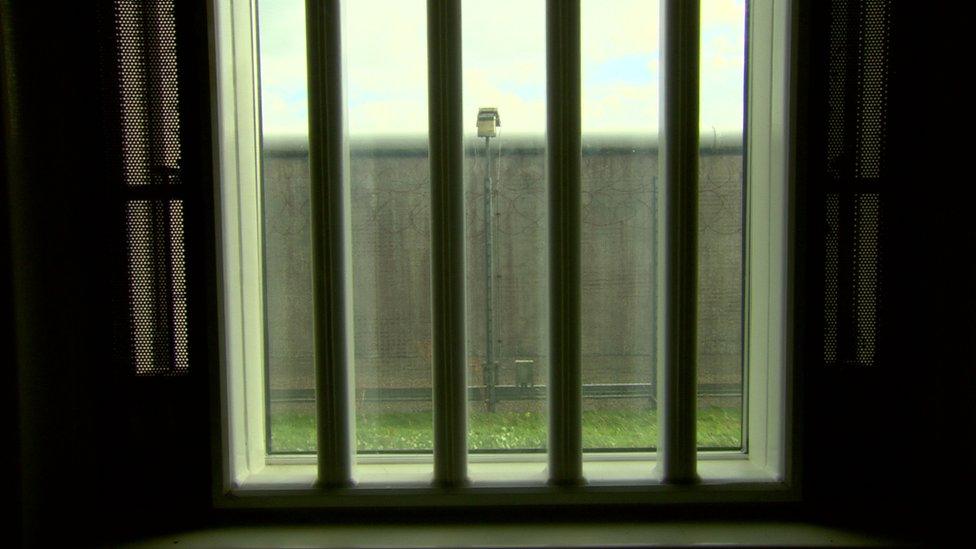
- Published16 November 2016
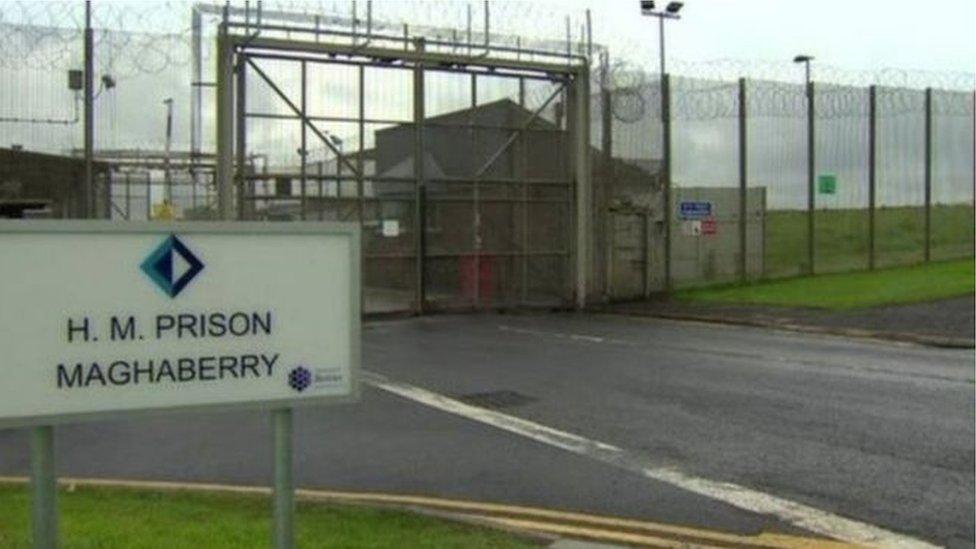
- Published13 October 2016
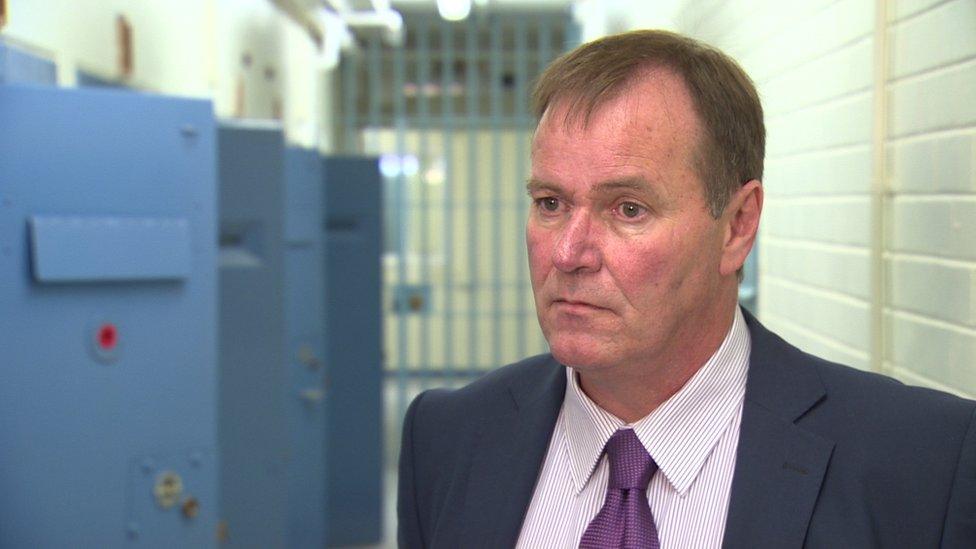
- Published5 November 2015
